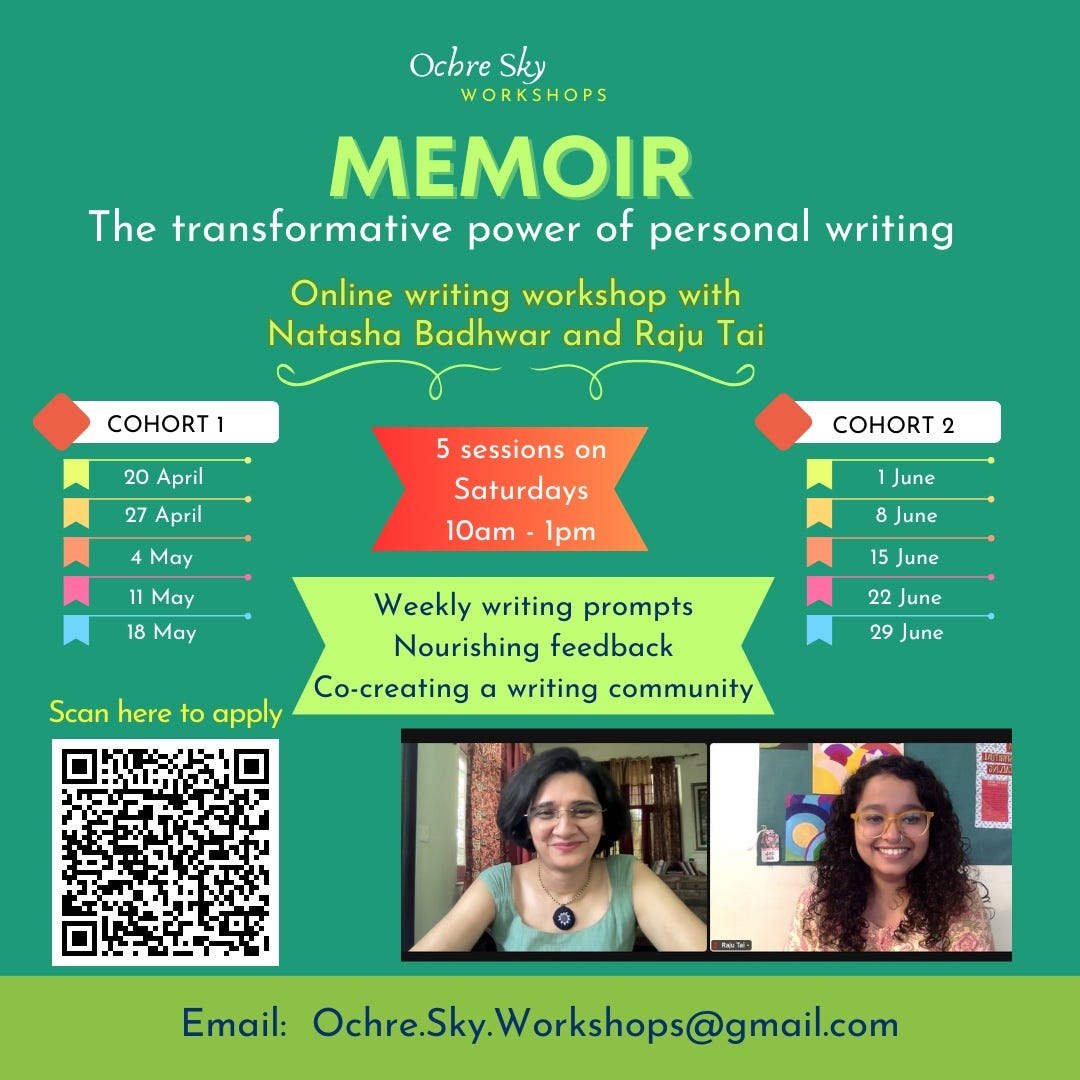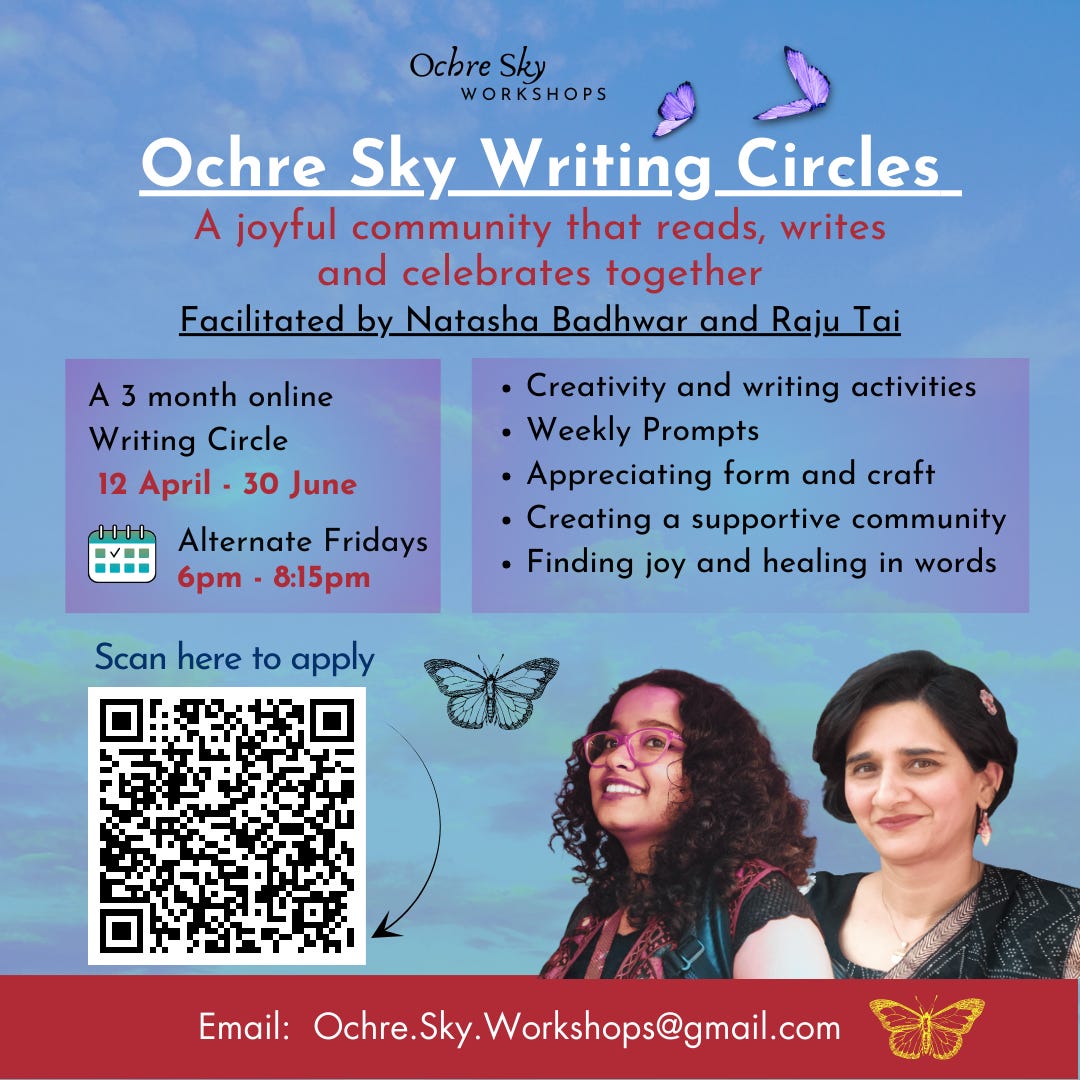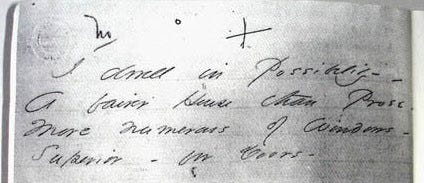Why we secretly avoid, resent, and disown poetry
"It feels like wearing a skirt after years of wearing pants," this Poetry Writing Month, I reflect on why poetry is wonderfully uncomfortable for most of us
Dear reader,
April is Poetry Writing Month. While some people resolve to write a poem a day, the rest of us retreat into our shell.
Today, I share an essay I first published in February 2022, on our estranged relationship with poetry. Next time, I will share its sequel, an essay on how we can rekindle this relationship.
Why we secretly avoid, resent, and disown poetry
The poet Marianne Moore began her poem Poetry, with this confession:
“I too dislike it”
I have not met a single adult yet, poet or not, who has a smooth and perfect relationship with poetry. We have strong opinions about it. It baffles us. It leaves us feeling raw.
Meterophobia is defined as the ‘irrational’ fear of poetry, and I’ve seen some of the brightest people fear poems. I haven’t been spared of it either. Even after reading, writing, and teaching it for years, I am a little terrified of poetry.
Meterophobia is a spectrum - from those who vehemently hate poetry to those who like it but keep it at a distance. We restrict our full exploration of poetry at different stages of our life. We criticise poetry or criticise ourselves. This essay is for us.
How meterophobia develops: a timeline
We are born into poetry.
Our life starts with songs and lullabies in our mother tongue, words are made rounder for our little ears, we love the repetition of sounds, our senses grasp at everything anew. For the first three years, the world is a poetic place. We love rhymes and tongue twisters. Our brain loves predicting the next line, and our heart loves the thumping rhythms. We enjoy small poems, maybe in two languages, and commit them to memory without even trying.
Somewhere in middle school, the poems lose their joy.
It’s not enough to enjoy the rhythm, we have to find the rhyming scheme. The poets, dead white dudes, seem to have encoded a singular meaning into the poem, which according to our English teacher, needs to be decoded and noted down. We scratch our heads or plagiarise the summary from a digest. We are asked to convert 2-line dohas of Kabir, or 14-line sonnets of Wordsworth into 3 pages of prose.
We are taught, not to love poetry, but to destroy its weave.
Stale poetry writing assignments are handed to us once a year. These must rhyme. We struggle to find what rhymes with wolf or orange and we’re befuddled. We give up poetry for life.
Unless we are from places like Iran, poetry has little space in our homes.
Elsewhere, the only poetic lines recited with family are religious verses. We are thought of as too old for lullabies, and too young for love poems. From 10th to 12th grade, we have no time to go beyond the four poems from our board exam syllabus.
In college, poetry seems like a separate language that only some people speak.
They nod and moan at the seventh line, while we are still grasping the second. We might have cracked the toughest entrance exams, but fail to understand Emily Dickinson. We look stupid for not getting it, so we pretend. Once. Twice. Eventually, we steer clear of all things poetry.
We are in denial about the poetry that enriches our life.
Simultaneously, we love rappers, get hooked to advertisement jingles, prefer brands with sound-ful names. We hum Gulzar or Adele - they sum up our complex relationships in one line. We love BREVITY. We don’t always say what we mean. We personify every little thing.
Yet, we are 100% sure poetry is not our cup of tea.
We feel left out of something grand, so we resent it. We decide literacy is enough, reading books is ideal, but poetry? Entirely unnecessary.
We feel inadequate among intellectuals, critics, literature buffs.
The mystery of it makes us nervous. Will I get it? Will I be able to read it until the end? It is hard to focus. When we finally like one poet on Instagram, we are told they are cheap, not the real thing.
Sometimes we get so repulsed by one kind of poetry, we give up on all of it. We despise the commodification of certain poems, the corruption of certain poets, the elitist and snooty thekedaars of poetry. We forget that genuine poetry exists.
Why I avoid poetry
I have not given up on poetry, but I resist its touch. I tend to unconsciously declare it ‘sacred’ and run away from it.
Some days I am too sick to read a haiku, on others my room isn’t clean enough to read a ghazal in. Sometimes I’ve watched too much trash on TV and feel like I’ve to do a lot of repentance to become the person who reads poems, the person who wears kohl and silver earrings and doesn’t stutter while reading Audre Lorde or Adrienne Rich. I don’t feel ‘sophisticated’ today, so I procrastinate poetry to a tomorrow where I truly deserve it.
When I write, I choose prose over poetry. Prose helps me JUSTIFY my emotions. Poems ask me to JUST describe them. After writing reams of prose, when I finally write a poem, it feels like wearing a skirt after years of wearing pants. Emily Dickinson refers to poetry as a house with many windows, and I hate being so exposed. The sudden freedom is too much, and the breeze touches parts of me that haven’t been touched in a while.
Alienation from poetry is alienation from humanity
Here is a little more of the Marianne Moore poem I mentioned at the beginning:
I too, dislike it: there are things that are important beyond all this fiddle.
Reading it, however, with a perfect contempt for it, one discovers that there is in
it after all, a place for the genuine.
“Perfect contempt” is what we feel. And yet we find something genuine in poetry that is hard to ignore. Yes, it baffles us, but it soothes us too. And here is how Galway Kinnells’s defines poetry:
“Poetry is the story of what it is to be here on earth.”
No wonder then, that exclusion from poetry can threaten our humanity.1 No wonder we resent a magic that is rightfully ours but kept locked by the gatekeepers of art.
That poetry has been absurd, even for Nobel Prize winning poets, is a comforting fact. That meterophobia hasn’t erased all poetry from our life is a testament to its power on us.
In my next essay, and maybe the rest of my life, I will share the ways I’ve found to shed our collective resistance to poetry. Admitting that we are a bit scared of poetry is the first step to demystifying it and re-inviting it into our lives.


This is an idea Ben Lerner suggested in his book ‘The Hatred of Poetry’







What a wonderful counterintuitive, poetic way to describe how love-hate is a valid feeling too :)
I've always loved the poetic, but taken a liking to poetry only recently, when I discovered that I can take from it what I need, and the rest will come to me when the time is right. I wish I was told that in school though, preferably during Reference to Context! On the contrary, my grandfather, who often quoted two-liners from famous poems for life situations or daily moods, was probably trying to teach me this anyway. I guess poetry asks to be heard/ performed and not read silently - and perhaps that's why we meet it readily in songs?
Ufff this is such a beautiful reminder of the irony, oddity, and beauty of a life lived in poetry... Thanku Raju Tai:)